PhD programmes
When you apply for a phd programme in sweden, you’re actually applying for a job. yeah, you read that right. 👀.

“Do a master’s here – I’d say it’s a very good step to doing a PhD in Sweden. I did my master’s at Malmö University and now I’m doing a PhD at Lund University” – Sanjay, Malmö University. Photo: Oskar Omne
So that means – no tuition fees, no scholarships. But you’ll receive a monthly salary instead. Nice, eh? And that’s why available PhD positions are listed on a university’s job board.

How to apply for a PhD position? You’ll apply directly to the university.
Just so you know, there’s no centralised application process. And things like requirements and application dates? This kind of stuff is decided by each department. But we do know that you’ll need to have a master’s degree – in the same field of study – and a great level of English to apply for a PhD here. You might even need to be fluent in Swedish. But that’ll depend on the subject.
+ - Find a PhD at a Swedish university
- PhD at Blekinge Institute of Technology ↗️
- PhD at Chalmers University of Technology ↗️
- PhD at Dalarna University ↗️
- PhD at Halmstad University ↗️
- PhD at Jönköping University ↗️
- PhD at KTH Royal Institute of Technology ↗️
- PhD at Karlstad University ↗️
- PhD at Karolinska Institutet ↗️
- PhD at Konstfack ↗️
- PhD at Linköping University ↗️
- PhD at Linnaeus University ↗️
- PhD at Luleå University of Technology ↗️
- PhD at Lund University ↗️
- PhD at Malmö University ↗️
- PhD at Marie Cederschiöld University ↗️
- PhD at Mälardalen University ↗️
- PhD at SLU (Swedish University of Agricultural Sciences) ↗️
- PhD at Stockholm School of Economics ↗️
- PhD at Stockholm University ↗️
- PhD at Stockholm University of the Arts ↗️
- PhD at the Swedish Defence University ↗️
- PhD at Södertörn University ↗️
- PhD at Umeå University ↗️
- PhD at University College Stockholm ↗️
- PhD at University West ↗️
- PhD at University of Borås ↗️
- PhD at University of Gothenburg ↗️
- PhD at University of Gävle ↗️
- PhD at University of Skövde ↗️
- PhD at Uppsala University ↗️
- PhD at Örebro University ↗️
+ - Find other academic positions in Sweden
- University Positions ↗️
- Academic Positions ↗️
- EURAXESS academic positions in Europe ↗️
+ - Useful info about research
- CORDIS ↗️ – EU Research and Information Service
- EURAXESS information ↗️ – Portal for information and practical assistance for researchers moving to Sweden
- Formas ↗️ – The Swedish Research Council for Environment, Agricultural Sciences and Spatial Planning
- Swedish Council for Health, Working Life and Welfare ↗️
- Swedish Research Council ↗️
- Vinnova — Sweden’s Innovation Agency ↗️ – An organisation that integrates research and development in technology, transport and working life
- Handbook for International Researchers ↗️ – Stockholm University’s handbook for international researchers

- 👩🏽🎓 Beyond the master's: a PhD?
- Find a research position at a Swedish university ↗️
The request to the URL needs to be verified.
The request to the URL is paused, and must be verified for you to access it. This question is for testing whether you are a human visitor, and to prevent automated spam submission.
What code is in the image submit
Incident ID: 14604593418537026571
For comments and questions: [email protected]
Lund University
The browser you are using is not supported by this website. All versions of Internet Explorer are no longer supported, either by us or Microsoft (read more here: https://www.microsoft.com/en-us/microsoft-365/windows/end-of-ie-support ).
Please use a modern browser to fully experience our website, such as the newest versions of Edge, Chrome, Firefox or Safari etc.
Doctoral studies
Start your academic career with us and make a difference
World-class research, outstanding research staff and specialised research environments at Lund University create excellent conditions for doctoral students.
As a doctoral student at Lund University, you will not only be well prepared for a successful career as an independent researcher, but you will also have the possibility to publish your work independently during your studies and to gain significant teaching experience.
- Lund University offers doctoral education in all nine faculties
- There are no tuition fees for doctoral education at Lund University
- You apply directly to the relevant faculty/department when they advertise a doctoral position
- Self-funded doctoral students should contact the department of their research interest directly.
Admission requirements
To be admitted to a doctoral programme, you need to have completed courses of at least 240 credits (of which at least 60 credits must be for Master’s level studies) or acquired equivalent knowledge in some other way.
In most cases, students will hold a Bachelor’s degree and a Master’s degree, with a major in the same subject as the intended postgraduate study. The major must include a degree thesis presenting the results of independent research.
The quality of your thesis/theses is of particular importance and it is important that you demonstrate a capacity for independent thinking in this piece of work.
Students must have a very good command of English and you may be asked to include proof of proficiency in the form of a TOEFL or IELTS test, if requested by the individual department.
Admission rules for doctoral education at Lund University | 2022 (PDF 249 kB, new tab)
Applying for a doctoral (PhD) position
Doctoral education is organised at the faculty or department level. Application procedures and periods differ between faculties and departments. While some of them advertise their doctoral positions around the same time every year, mostly in spring, others advertise their positions on an ongoing basis.
You apply for a doctoral education position within a certain subject area. Admission to a doctoral education position is restricted and competition for advertised positions is usually tough.
Finding a suitable position
Any funded doctoral positions at Lund University are advertised on our vacancies page on this website (see link below). Select the category 'Doctoral students'.
Once you have found a position you are interested in, carefully read through the vacancy announcement to find out whether you meet the requirements.
Before you apply, we recommend that you also check the relevant faculty's or department's website for any additional information about the application process.
Should you have any questions about a specific position, please contact the contact person(s) listed in the vacancy announcement.
Find PhD vacancies
How to apply
To apply for a doctoral position, you must create an account in the recruitment system Varbi.
Follow the instructions regarding application documents and procedure in the vacancy announcement.
The application documents that you submit through Varbi, including any supporting documents, are sent directly to the faculty or department that advertised the position.
If you are self-funded through external scholarships or funding, you do not need to create an account in Varbi. You should instead make direct contact with the relevant faculty or department.
Applying for a position
Employment as a doctoral student
As a general rule, a person admitted to doctoral studies at Lund University is employed through a doctoral studentship.
If you have a doctoral studentship, you are considered to be both a student and an employee with a salary during your doctoral studies. As an employed doctoral student, you are covered by local and central agreements concerning your terms of employment.
In parallel to the doctoral education programme, as a doctoral student you may work with administrative and teaching duties (no more than 20% of a full-time position).
Lund University is responsible for education-related matters and the study environment regardless of how you finance your doctoral studies. All doctoral students also have access to the University’s Occupational Health Service.
Other forms of financing
It is possible to undertake your studies using another form of financing, such as an external scholarship or an agreement between Lund University and an external employer.
Financed by external employer
If you are admitted to doctoral studies and have a position with an employer other than Lund University, you are solely a student, and it is the employer who is responsible for employer-related matters.
External scholarships
As a doctoral student with a scholarship, you are solely a student. You are therefore not entitled to contractual employment benefits at Lund University.
In some cases, a doctoral student with a scholarship is entitled to apply for a doctoral studentship when three years remain of the third-cycle studies.
Doctoral studies – faculty information
On the faculties' webpages for prospective doctoral students you can get specific and detailed information application procedures, admission requirements for various subjects, study plans and more.
- Faculty of Engineering (LTH)
- Faculty of Fine and Performing Arts
- Faculties of Humanities and Theology
- Faculty of Law
- Faculty of Medicine
- Faculty of Science
- Faculty of Social Sciences
- School of Economics and Management (LUSEM)
Residence permits (if applicable)
If you require a residence permit, you can only complete your permit application after you receive a letter of acceptance from Lund University. Residence permit applications are dealt with by the Swedish Migration Agency.
Residence permit for doctoral studies – migrationsverket.se
About doctoral studies
A doctoral programme consists of 240 ECTS credits and normally requires four years of full-time study. The programme concludes with a doctoral thesis of at least 120 credits.
A 'licentiate' degree is equivalent to half the coursework required for a full doctoral programme and a licentiate thesis of at least 60 credits. It is equivalent to the MPhil of the British education system.
The following links are to the Swedish Council for Higher Education website:
- Degree of Doctor
- Degree of Doctor in the fine, applied and performing arts
- Degree of Licentiate
- Degree of Licentiate in the fine, applied and performing arts
Related links
- Institutes and research centres
- Research excellence areas
- Find research at Lund University
- Services for LU researchers

Doctoral student vacancies
Check out our vacancies page regularly to find open doctoral positions.

Doctoral conferment ceremony
The ceremonial highlight of the academic year.

Postgraduate research schools
Additional development opportunities for doctoral students and postdocs.
- Svenska Close Den här sidan är ej översatt Startsida på svenska

Doctoral studies at KTH
Complete a doctoral degree (PhD) in a dynamic, international research environment with world-class facilities and close collaboration with industry and prominent universities worldwide.
- Being a doctoral student
- Doctoral programmes and subjects
- Employment at KTH
- How to apply
- Entry requirements
- Joint programmes and scholarships
Explore KTH
- Virtual campus tour
- Ask us about studies
KTH Royal Institute of Technology
KTH is Sweden's largest and most respected technical university—ranked top 100 in the 2022 QS World University Rankings. By choosing KTH, you gain access to a vibrant student life and a prestigious academic environment.
As one of our 2,000 doctoral students, you will take courses and devote yourself to a research project under the supervision of an experienced researcher. Most students are employed and receive a monthly salary. Begin your journey towards a KTH degree today.
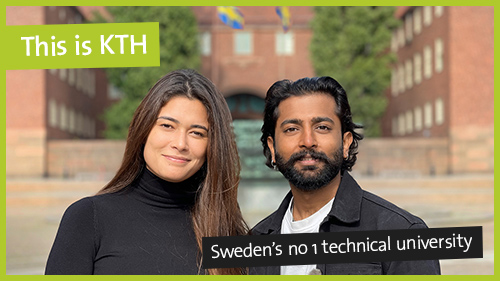
Explore how doctoral studies work at KTH and if we are a good fit for you.
Want to join us?
We have gathered all the steps you need to take to become a doctoral student.
Vacant positions
To become a doctoral student the first step is to apply for a vacant position.
Take a campus tour
Let our students guide you through our campuses and favourite KTH spots.
PhD programs

PhD program in Business Administration

PhD program in Economics

PhD program in Finance
Additional information.

PhD content hub - Your journey to SSE

PhD courses

Upcoming events
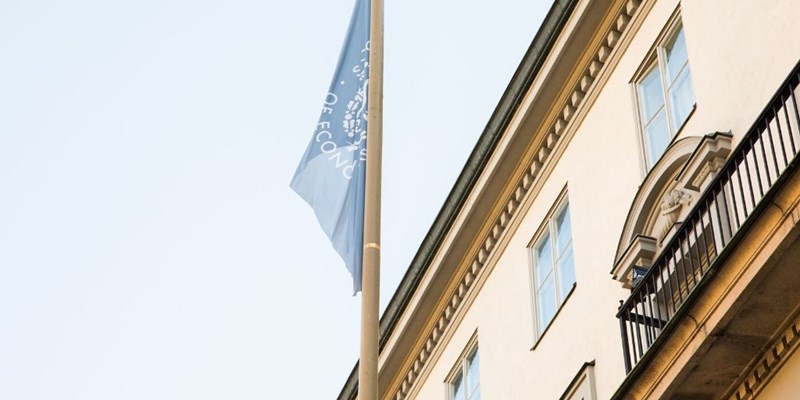
New PhD students 2024
Lund University
The browser you are using is not supported by this website. All versions of Internet Explorer are no longer supported, either by us or Microsoft (read more here: https://www.microsoft.com/en-us/microsoft-365/windows/end-of-ie-support ).
Please use a modern browser to fully experience our website, such as the newest versions of Edge, Chrome, Firefox or Safari etc.
Doctoral studies
Doctoral programmes (PhD programmes) are offered by all six departments at the Lund University School of Economics and Management. It is often given in collaboration with other parts of Lund University or with other institutions in Sweden.
The doctoral degree is the highest academic degree. The Swedish doctoral degree comprises 240 credits and the doctoral programme normally takes four years of full-time study.
The programmes differ somewhat between disciplines, but in all cases they consist of at least one year of course work and at least two years spent writing the doctoral thesis. The thesis can be produced in the form of a monograph or in the form of a number of articles published during the doctoral programme, a so-called compilation thesis. The thesis is defended at a public defence where an opponent reviews and opposes the thesis. An examining committee consisting of at least three people grade the thesis.
You also have the option of obtaining a licentiate degree after 120 credits. Such a degree can either conclude a programme or be awarded when you are halfway to a doctoral degree. The thesis is then called a licentiate thesis and is presented and examined at a seminar.
After graduation many doctors pursue academic careers while others obtain positions within business or public administration.
At present, the School of Economics and Management has about 100 admitted doctoral students and around 20 doctoral theses are produced each year.
Regulations for third-cycle education at LUSEM (pdf, 290 kB)
Apply to a doctoral programme
Are you interested in joining a doctoral programme at the School of Economics and Management? You apply via the department where you want to do your research. All vacant PhD positions are advertised via Lund University’s job portal.
Application and admission
Financing your doctoral studies
At the School of Economics and Management there are two different ways of financing your studies: employment as a doctoral student, or external funding. External funding may consist of employment outside the university or a scholarship from an external source. It is important to recognise that the different types of funding give you different levels of social security. Upon admission, funding must be secured for the entire duration of the programme and must be at least half-time.
The doctoral degree conferment ceremony
The doctoral degree conferment ceremony takes place at the end of May and is the biggest event of the academic year. During the ceremony, the University rewards those who have completed a doctoral programme and defended a doctoral thesis. At the promotion ceremony, the insignia of learning are awarded: the hat or laurel wreath, the ring and the diploma.
On the same occasion, the University also honours outstanding researchers from other universities and individuals by awarding them honorary doctorates. As a tribute to previous generations, those who received their doctoral degree 50 years ago are also promoted to jubilee doctors.
The doctoral degree conferment ceremony – lunduniversity.lu.se
Quality assurance in research education
Our doctoral programmes are regularly evaluated to maintain their quality.
Doctoral studies at the departments
- Department of Business Administration
- Department of Business Law
- Department of Economic History
- Department of Economics
- Department of Informatics
- Department of Statistics
Lund’s Doctoral Student Union
– for all research students at Lund University
For current doctoral students
More information about your doctoral studies in Canvas

- Denna sida på svenska
- Utbildning startsida
- ki.se startsida
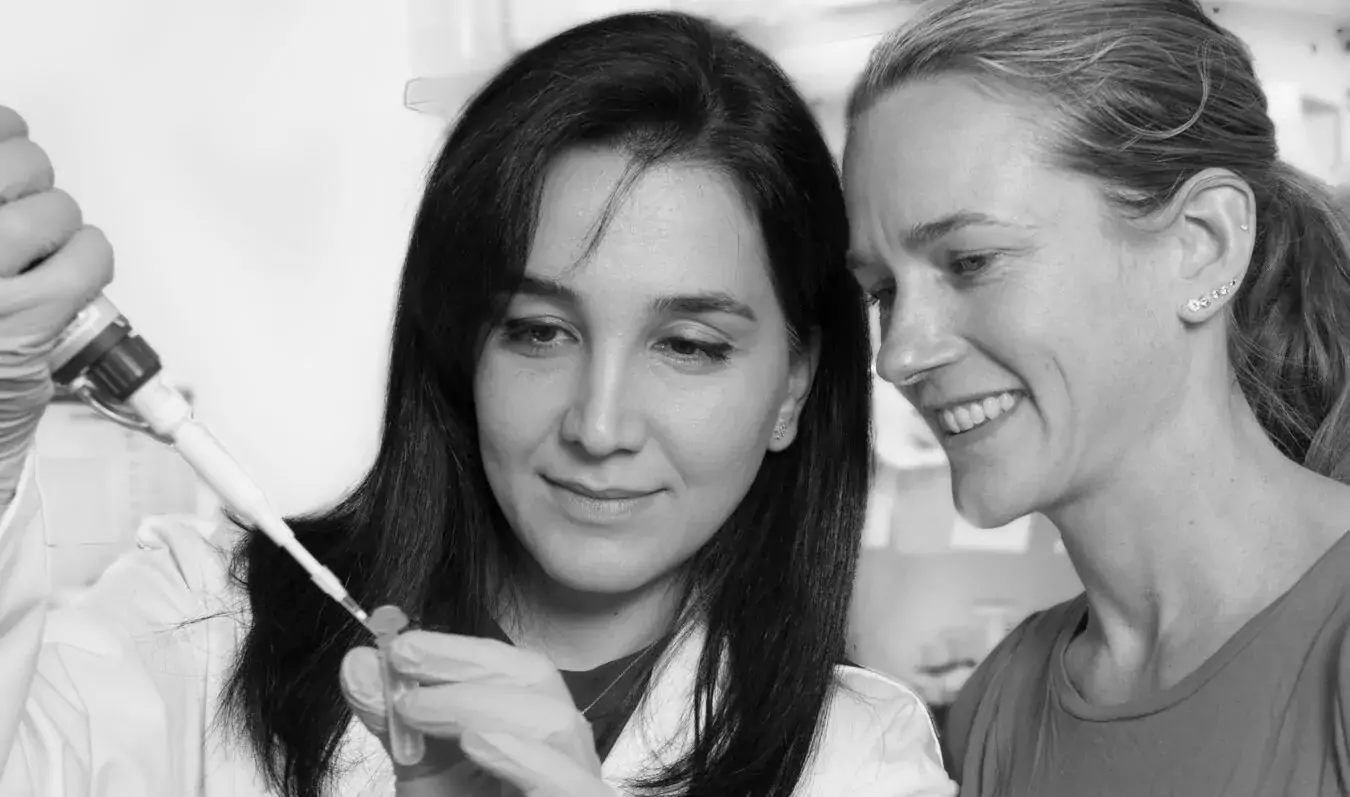
Doctoral education at Karolinska Institutet
Welcome to a University with focus on doctoral education! World-class research and specialised research environments create a breeding ground for doctoral (PhD) studies at Karolinska Institutet (KI).
Menu for this area
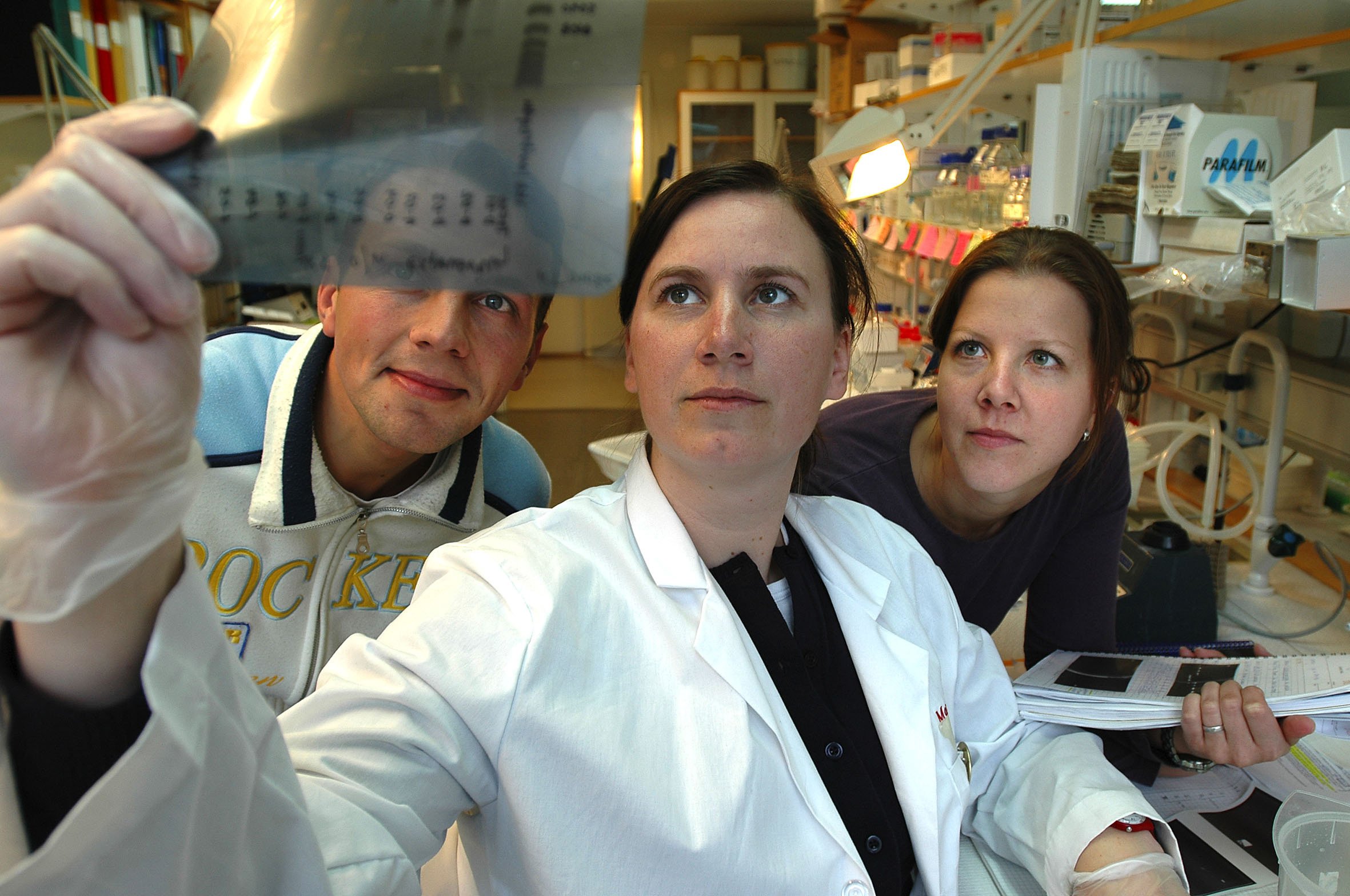
Available positions for doctoral education
Doctoral education positions at Karolinska Institutet are advertised continuoulsy and we welcome your application.

For current doctoral students at KI
Doctoral students and employees at Karolinska Institutet can find more information about the doctoral education and the resources needed in the every day working life within the university at the Staff portal.
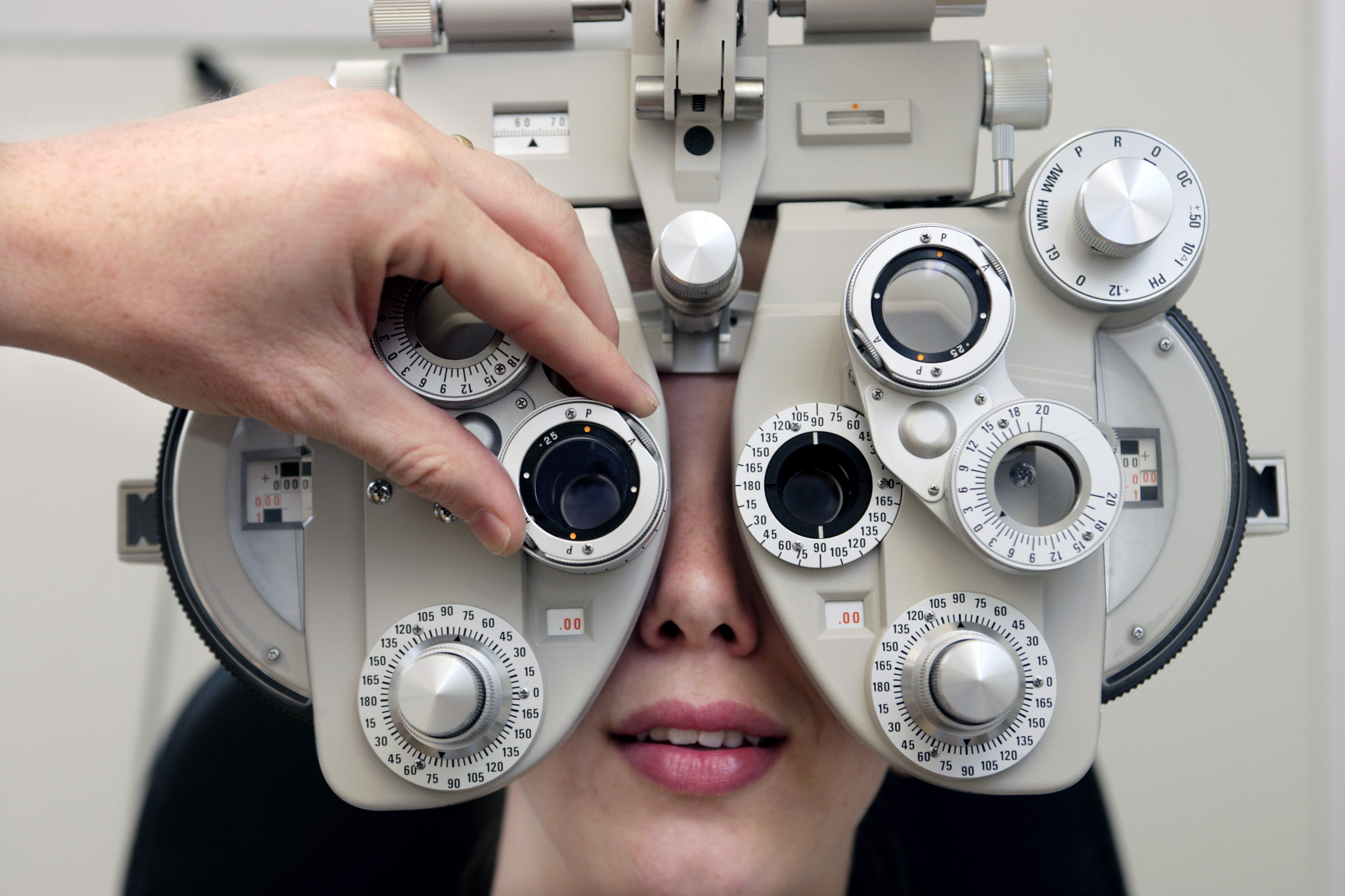
Course catalogue and course vacancies
Karolinska Institutet offers a large number of doctoral courses for our current doctoral students every semester, look for the one that fits you and find vacancies in the course catalogue.
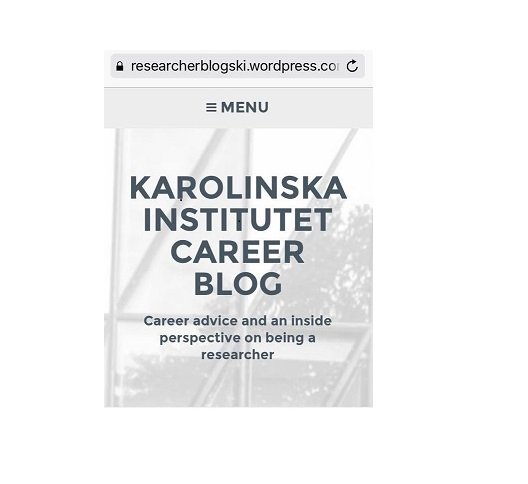
Blogging about research and career
Interested in life as a researcher? Follow doctoral students, postdocs, researchers and alumni blogging for KI Career Service on the Researcher blogs.

Study in Stockholm
The official guide on what Stockholm has to offer international students.

International staff
KI offers support service for international doctoral students. Here you can find all kinds of necessary information for your stay in Sweden and KI.
Doctoral education - available positions
- School of Health and Welfare
- School of Education and Communication
- School of Engineering
- Jönköping International Business School
- Jönköping University Enterprise
- University Library
- Current student

Doctoral Programmes
Jönköping University offers Doctoral Programmes in English, available for international students with the required qualifications. Doctoral education is conducted at all four schools and the university has about 203 doctoral students.
Jönköping International Business School offers Doctoral Programmes entirely conducted in English. At the School of Education and Communication, the School of Engineering and the School of Health and Welfare Doctoral programmes are conducted in English when required.
Humanities and Social Sciences
Jönköping University is entitled to award Licentiate and Doctoral degrees within the Humanities and Social Sciences.
Subjects for research studies in the Humanities and Social Sciences
Business Administration, Disability Research, Education with Specialisation in Didactics, Economics, Education, Health and Care Sciences, Media and Communication Studies, Education with Specialisation in Special Education, Statistics, and Welfare and Social Sciences.
Engineering
The University is also entitled to award Licentiate and Doctoral Degrees in Engineering, research area: Industrial Product Realisation.
Content updated 2022-07-05
Contact page responsible.


300 doctoral students in over 30 subjects
High-quality research is carried out at Linnaeus University, focusing on everything from health, social work, and the behavioral sciences, to the humanities, social sciences, economics, design, the natural sciences, and engineering and technology
The research is carried out either as specialisation research within a faculty, or through interdisciplinary research across faculty boundaries. In many subjects, research is also carried out with a didactic or educational specialisation. Research training is offered within all faculties and leads to a licentiate or doctoral degree. Approximately 300 doctoral students are active in 32 different subjects, several of which have a didactic or educational science specialisation.
Linnaeus University provides research training characterised by good conditions, a committed supervisory team, and well-established national and international networks.
Holders of doctoral degrees from Linnaeus University have pursued research together with supervisors and other doctoral students in high-quality research environments, and are used to working in teams and to presenting their research in many different contexts.
Research training is the foundation for a career as a researcher and teacher at a university, or as a researcher in the industry. This type of training can also often lead to other exciting jobs.
Courses at third-cycle level
Linnaeus University offers a number of different courses at third-cycle level within our subjects. Some of these are open to doctoral students at other universities, while others are open only to doctoral students at the faculty or subject itself. In the lists below, which are not complete yet, you will find those of our courses that have their own pages.
General courses
- 13 Nov, 2023 – 26 Jan, 2024
- Postgraduate level
- Not decided yet.
- Not decided
- Spring 2024
- Växjö
Courses at the School of Business and Economics
Faculty level.
- Full time studies
Business administration
- Full time studie
- not specified
Courses at the Faculty of Health and Life Sciences
- Autumn 2024
Health science
- Autumn 2023
Courses at the Faculty of Arts and Humanities
Courses at the faculty of social sciences.
- Växjö or Kalmar
- January 23, 2024
Social work
Sport science.
- October 2023
Courses at the Faculty of Technology
Building technology.
- The course runs once a year in LP 4 if the number of participants is more than 3 students
- One semester course
Energy and environmental technology
- Not yet determined
- Not determined
Computer and information science
- On average 10-12 hours study per week over 1 study period
Mathematics education
Courses in collaboration with other higher education institutions, courses at other higher education institutions.
PhD courses within the collaboration Universities in South Sweden (Lärosäten syd):
- Halmstad University
- Kristianstad University (in Swedish)
- Malmö University
- Lund University (Faculty of Social Sciences)
- Swedish University of Agricultural Sciences (SLU)
PhD courses at other higher education institutions:
- Dalarna University
- Jönköping University
- Karlstad University
- Karolinska Institutet
- Linköping University
- Luleå University of Technology
- Mid Sweden University (Swedish page)
- Mälardalen University
- Stockholm University (Faculty of Social Sciences; Swedish page)
- University of Gothenburg
- Örebro University
Admittance to PhD studies
To be admitted to PhD studies in a third-cycle subject area there are some requirements which have to be fulfilled. These requirements concern the applicant as well as the faculty hosting the subject area.
These are the basic areas of requirements:
Eligibility requirements
Basic entry requirements.
Students at third-cycle level must have completed first and second-cycle degrees, either in Sweden or abroad, or have equivalent qualifications. To meet the basic entry requirements for PhD programmes, applicants must have a second-cycle degree or have completed studies comprising at least 240 higher education credits, of which at least 60 credits were awarded at second-cycle level, or have completed a corresponding programme in another country or have equivalent qualifications.
Specific entry requirements
Specific entry requirements vary from subject to subject. These requirements must be considered essential for a student to be able to complete the programme. Often these requirements stipulate knowledge acquired in higher education but specific vocational experience may also be required. The specific entry requirements are listed in the general syllabus of the subject area.
Apart from fulfilling the general and specific entry requirements for admission to PhD programmes, the applicant is required to have the ability required to benefit from the study programme. This includes an evaluation of the applicant's ability to finish the programme within four years of full-time studies (or equivalent if the studies are not performed full-time) for a doctoral degree, or two years for a licentiate degree.
The ability is usually evaluated based on the essays/theses from first- and second-cycle studies, the proposed research plan, scientific publications, and the results of interviews. The combination of subjects taken during first- and second-cycle studies may be important and is sometimes taken into account. Assessment and selection criteria are stated in the general syllabus of the subject. Any additional requirements will be listed in the job advertisement.
Funding doctoral education
Third-cycle studies at Linnaeus University shall be funded primarily through doctoral studentships. Students with any other forms of funding may be admitted to third-cycle studies if the responsible body deems the financial means to be in place for the applicant. Such forms of funding include: funding from an employer other than Linnaeus University; research scholarships; funds especially allocated for lecturers; and self-funding.
If an applicant wishes to be admitted with another form of funding than an internally funded doctoral studentship, the feasibility of the funding plan must be assessed.
Below you will find more information about the process of applying for doctoral student positions or enquire about other forms of funding.
In order to admit a doctoral student, the faculty must provide the necessary resources. The faculty needs to provide supervisors, examiner, work space for the doctoral student, as well as other necessary resources. If these are not available, admission is not possible.
How to apply for a doctoral position
Most doctoral student positions (PhD's) at Linnaeus University are officially announced through the Linnaeus University job vacancy page. The application process differs depending on if the doctoral position is officially announced or not.
Applying for announced doctoral positions
If you are interested in PhD studies at Linnaeus University you should check out the vacant job listings. Available doctoral studentships (employment as a doctoral student) are posted at Work at the university. Check for vacant jobs at the university
These studentships will finance your studies for an equivalent of four years full-time studies for a doctoral degree or two years full-time studies for a licentiate degree, and during this time you will be employed by the university. You are not allowed to be employed on a studentship for less than 50% of full-time studies.
When you apply for a doctoral studentship, you are also applying for admittance to PhD studies in a third-cycle subject area. There will be two decisions made in this process: one concerning admittance (which will take place first) and one concerning employment/doctoral studentship. In the job advertisement you will find information on what to include in your application, the application deadline, and whom to contact if you have questions. The applicants' eligibility and ability are assessed, and if there are more applicants than available positions, they will be placed in order of preference, according to an assessment of the applicants' qualifications and abilities. The decision making process follows the rules and regulations of the third-cycle education. After the decision on admission has been made, the decision-making process of the doctoral studentship is immediately initiated. All the applicants will receive information about the decisions as soon as the decision on the doctoral studentship has been taken.
Applying with another form of funding
If you have another form of funding for your PhD studies (for example scholarship, external funding from an institute that finances research and PhD studies, or another kind of funding) you should contact the faculty which is responsible for the subject area in which you are interested. They can give you an idea of whether your financial plan is acceptable or not. They can also inform you if they have other resources available that are fundamental for admission, and give you details about the admission process. Ask for the research officer of the faculty in charge.
Other information
Rights and obligations.
The faculty in which the doctoral student is placed is responsible for providing the programme described in the general syllabus of the subject area and in the student's individual study plan. The doctoral student is obliged to follow the programme as described in the general syllabus and in the individual study plan. You can read more about rights and obligations in Linnaeus University's Local regulations for third-cycle courses and study programmes .
International opportunities for doctoral students
As a doctoral student, you have plenty of opportunities to get international experience. You can, for instance, take courses, participate at conferences, gather data for your studies or be part of a research group abroad. International experiences contribute to increased competitiveness on the global market and can open new doors and present you with new research opportunities.
Read more about international opportunities for doctoral students .
- 17 April 2024
- 28 March 2024
- 13 February 2024
- 16 May 2024 1:15 PM 3:00 PM LNUC CONCURRENCES SEMINAR SERIES IN COLONIAL AND POSTCOLONIAL STUDIES Racial mixture and the dominance of Whiteness, the paradoxes of racism in Latin America
- International website
- Find courses
- Find research
- Find organisation

- Institute of Biomedicine
Doctoral Studies
Are you interested in research? We continuously announce PhD positions. As a PhD student, you will belong to a research group and conduct your research under supervision of one or more senior scientists that eventually leads to a thesis. In parallel, you will take courses to complement your research education and participate in scientific conferences.
The Institute of Biomedicine has more than 100 PhD students that belong to any of our four Departments: Infectious Diseases, Microbiology and Immunology, Laboratory Medicine and Medical Biochemistry and Cell Biology. During the four-year PhD programme, you will learn to conduct high quality research in a highly stimulating scientific environment to deepen your knowledge of the research field. The thesis itself amounts to 210 ECTS, while the courses comprise up to 30 ECTS. It is also possible to participate in a five-year programme in medical basic sciences at the Institute of Biomedicine, where you will combine PhD research and teaching as part of an education intended for medical students with a strong research interests intending to pursue combined occupations within academia and health care.
Our departments

More about doctoral studies
Start date 26 Apr 2024 Research Anders Östlund - The Translocation t(7;12)(q36;p13) in Childhood Acute Myeloid Leukemia
Start date 3 May 2024 Research Julián Bobis Camacho - Development and evaluation of a sewage-based monitoring system for surveillance of antibiotic resistant bacteria
Start date 10 May 2024 Research Berta Marcó de la Cruz - Molecular mechanisms of human presynapse assembly - role of Liprin-alpha proteins in synapse organization and neurological disease
Start date 30 May 2024 Research Andrew Boucher - Unveiling Cholera Toxin Binding and intoxication using Enteroids and Site-Specific Mutants
Start date 30 May 2024 Research Francesco De Luca - Autoimmunity, regeneration and biology of the human kidney

Application
Contact Persons
PhD Studies
Department of Psychology
PhD Education
Postgraduate education in psychology includes 4 years of full time studies and ends with a PhD dissertation. The education entails 240 credits for a PhD degree where the dissertation includes 180 credits and the remaining 60 credits constitutes of courses.
Admission normally takes place once a year. Open spaces are announced on this webpage ( www.psyk.uu.se ).
Our department has limited resources to finance graduate students. Only applicants from whom a plan for financing of 4 years of full time studies is secured can be accepted into the program. Financial means come from Uppsala University, from external grants and from the applicant’s personal sources. Personal sources must be clearly specified and certified.
The doctoral programme of the Department of Psychology at Uppsala University receives the rating ”High Quality” in The Swedish Higher Education Authority's national evaluation of doctoral programmes in psychology in 2018.
Use of cookies
Uppsala University uses cookies to make your website experience as good as possible.
Read more in our cookie policy.
The Doctoral Programme in Ethnic and Migration Studies
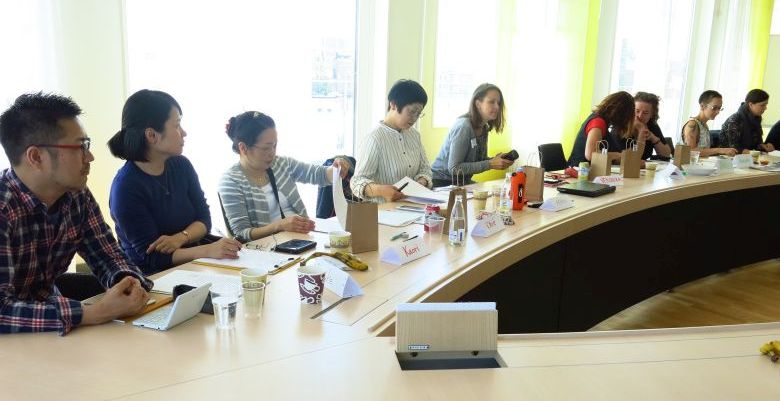
General Study Plan
The study plan applies to students completing their education with a doctorate and for students completing their education with a licentiate.
- Study plan PhD Ethnic and Migration Studies (PDF, 112,3 kB)
The Graduate School in Migration, Ethnicity and Society
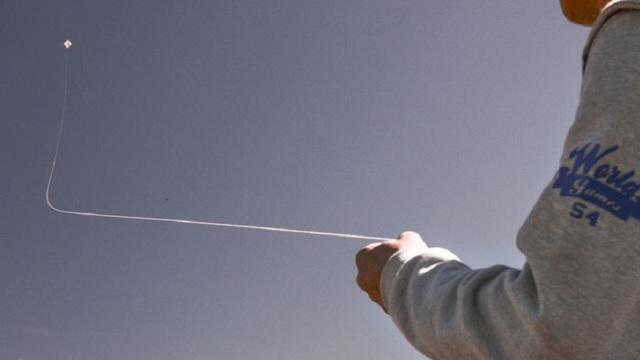
The Swedish Research Council’s Graduate School in Migration and Integration
The graduate school provide PhD students with advanced teaching, research training and networking opportunities. It aspires to create a unique intellectual milieu for PhD students who write their dissertations on migration and integration.
Collegium of Supervisors
- Anna Bredström
- Pouran Djampour
- Stefan Jonsson
- Kristoffer Jutvik
- Karin Krifors
- Branka Likic-Brboric
- Catrin Lundström
- Anders Neergaard
- Olav Nygård
- Mauricio Rogat
- Zoran Slavnic
- Claudia Tazreiter
- Madina Tlostanova
- Xolani Tshabalala
- Anna Ådal
- Doktorandrepresentant: Celina Ortega Soto
Head of Doctoral Studies

- Department of Culture and Society (IKOS)
Division of Migration, Ethnicity and Society (REMESO)
- peo.hansen@ liu.se
- +4611363423
Director of Doctoral Studies
Ingemar Grandin
Associate Professor, Docent
- Division of Culture, Society, Design and Media (KSFM)
- ingemar.grandin@ liu.se
- +4611363164
Administrator
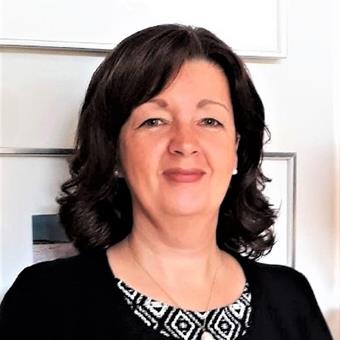
Agnese Grisle
- Division of Administrative Support (VS)
- agnese.grisle@ liu.se
- +4613282468
The Research Environment Migration, Ethnicity and Society
Institute for Research on Migration, Ethnicity and Society - REMESO
The institute conducts research with a multilevel approach to the understanding of migration, ethnicity and society.
Related content
Courses within the doctoral programmes at the Department of Culture and Society
The Department of Culture and Society offers a variety of graduate courses within the humanities and social sciences. The courses are offered to doctoral students at Linköping University and other institutions of higher education.
Doctoral studies at the Faculty of Arts and Sciences
The Faculty of Arts and Sciences offers a wide variety of doctoral studies, both in single disciplines and in interdisciplinary programmes.
Public defence of doctoral thesis and licentiate seminar at Linköping University
Find upcoming public defence of doctoral thesis and public licentiate seminar at Linköping University.
Organisation
REMESO pursues research and education on transnational migration, ethnic diversity and citizenship in relation to changes in labour and welfare.
At the Department of Culture and Society (IKOS), social sciences and the humanities gather in environments where research and education work together.
Doctoral studies at Linköping University
If you want to gain a profound understanding of a particular field, doctoral studies at LiU could be for you.
- Third-cycle subject area
- Doctoral studies
- Institute for Research on Migration, Ethnicity and Society (REMESO)
- Faculty of Arts and Sciences (FILFAK)
Department of Education
Phd programme in education.
Are you inquisitive and interested in deepening your knowledge in a specific field? Are you passionate about a specific research question? Would you like to make a contribution to increasing knowledge concerning learning, education and development? Do you enjoy writing academic papers in English? Are you able to independently structure your tasks and your time and can meet deadlines? Then applying for a PhD position could be of interest to you.
Courses at the PhD-Level
Mandatory and optional courses in Education:
Courses at the PhD-Level
Your application in four steps
Step 1: review our research groups to determine if our research interests match yours, research groups at the department of education.
- Adult Learning
- Career Development and Guidance
- Didactics as Communication
- Educational Research in Citizenship Competences (ERiCC)
- Higher Education Learning Practices
- History of Education and Sociology of Education
- International and Comparative Education Research - ICER
- Leadership, Improvement and Organization of Schools (SOUL)
- Organization pedagogics
- Pedagogy and Health
- Philosophical and Critical Studies in Education
- Vocational and Educational Training
Please note: contacting professors or associate professors before being admitted into the programme precludes them from evaluating your application.
Step 2: Carefully read through the admissions criteria and process for the PhD programme
General admissions criteria.
In order to meet the general admissions criteria, the applicant must have completed a second-cycle degree/Master’s degree and completed courses equivalent to at least 240 Swedish higher education credits (hp/ECTS), of which at least 60 ECTS must be in the second cycle or have otherwise acquired equivalent knowledge in Sweden or elsewhere.
The General Admissions Criteria must be fulfilled by the closing date of the admissions round.
Special Admissions Criteria
In order to meet the Special Admissions Criteria, the applicant must have completed courses equivalent to at least 90 hp/ECTS and a thesis of at least 15 hp/ECTS in one of the following subject areas: education, international and comparative education, didactics, subject-specific didactics, child and youth studies, special education, pedagogical work,
or a teaching degree equivalent to at least 180 hp/ECTS, including a thesis of at least 15 hp/ECTS,
or a Bachelor of Arts in Study and Career Guidance, including a thesis of at least 15 hp/ECTS,
or completed courses equivalent to at least 90 hp/ECTS within another Social Science (including medical education) or Humanities subject area, including a thesis of at least 15 hp/ECTS.
In all cases, the thesis must address research questions relevant to educational issues, theories, and methods.
In addition, the applicant must have excellent spoken and written English language skills, which will be tested during the admissions round.
The General and Special Admissions Criteria must be fulfilled by the application closing date.
English language proficiency
The PhD programme requires excellent spoken and written English language skills since, for example, required courses are given in English.
English language proficiency is assessed during the application process: a degree project/thesis written in Swedish must include a summary in English of a maximum of 1 page using font size 12.
Applicants who are selected during the second assessment by the faculty experts are invited in for interviews and a language test . Spoken academic English proficiency is tested as part of the interview by the applicants answering some questions in English. The applicants' written academic English skills are tested by writing an abstract based on a peer-reviewed article. This test takes place after the interviews when the applicants will be handed an article for which to write the abstract within a given time limit.
Admissions Process
Those applications which fulfil the General and Special Admissions Criteria will be assessed based on the submitted research plan. Faculty members conduct this assessment.
A professor or associate professor who has a known bias towards an applicant (for example, are related to or have another personal relationship with or was a former supervisor) will not assess that application. In order to avoid bias, the applicant is expected to independently write their application without consultation from a departmental contact.
The research plans are made anonymous and then sent on to the supervisor group, a group of professors and associate professors at the department, who individually assign (without consultation) point values to each research plan, according to the following criteria:
- Stringency of the research question and analysis of earlier work and of the research plan.
- Familiarity with the research area of the intended research plan.
- Methodological and theoretical understanding and the degree to which reflexivity is reached in the texts.
- The qualities of planned research in relation to what it contributes to the discipline.
- The intended study’s prospective ethical implications and possibility of an ethical review.
- Ability to express themselves both written and verbally in an academic setting.
- The planned study’s feasibility within the allotted time.
The point values are added together and the applications with the highest total values are sent on to the final assessment round where their entire application, including degree projects/theses, are assessed by a group of faculty experts, made up of a group of professors, who assess the applications according the criteria listed above.
The highest ranked applicants are then invited in for interviews and a test of their written and spoken English.
The final admissions decision is made by the departmental board, based upon the total point value assigned by the faculty experts.
The applicants are informed as soon as a decision has been made, during the first half of June.
Please note that if you are planning to conduct data collection abroad, you must locate external financing to cover your travel costs. The department is not able to cover these costs. It can also be difficult to combine lengthy data collection projects with required course work so be sure to consider if your research plan will be possible to complete within the time allowed.
We do not accept PhD applicants who plan to visit/collect data in countries or regions included on the Swedish Foreign Ministry travel warning list:
http://www.regeringen.se/uds-reseinformation/ud-avrader/
In addition, we do not accept PhD-projects which require interpreter services.
Step 3: Look over the PhD Programme Overview and Terms of Employment
PhD Programme Overview
PhD Courses
Terms of Employment for PhD Students

Step 4: Begin your application
Application Requirements
Research Plan Requirements
Breakdown of how your research plan will be assessed
Senior lecturer/director of studies for the doctoral program
See profile page for Åsa Broberg

- Visiting address
- Frescativägen 54
Education Administrator
See profile page for Erika Södersten

Education Administrator for the PhD-program at the Department of Education and environmental representative
Last updated: September 18, 2023
Source: Department of Education
Search among our courses and programmes
- Single Courses
- Master's programme
Last updated: March 18, 2024
Study at Stockholm University
- Academic Writing Service
- Study and career counselling
- Studying with a disability
- Your rights and responsibilities
- Examination services
- Stockholm Student Health Services
- Study environment
- In an emergency
- Studenthuset and Infocenter
- Student unions
- Sporting activities on campus
- Places to study
- Computer places and printers
- Get access to wifi
- IT safety and security tips
- Software for students
- Digital tools and services
- Career events
- Find jobs and internships
- Tips for finding your career in Sweden
- Business and innovation support
- Visas and residence permits
- Swedish personal identity number
- Living costs
- Learning Swedish
- Step-by-step guide
- Entry requirements
- Costs, fees and scholarships
- Important dates
- Sweden’s higher education system
- FAQ and contact
- How to apply
- Select your courses
- Practicalities
- Our courses and programmes
- First-class education and research
- Discover Stockholm and Sweden
- Meet us online and around the world
- Hear from our alumni
- Students of Stockholm University
- Our researchers. Your teachers
- Study with us – the newsletter
- Pre-departure information
- Checklist for admitted students
- Welcome Activities
- Get access to IT services
- How to register
- Find your way on campus
- Q&A regarding the coronavirus
- Exchange studies
- Calls for application
- Short-term exchange
- Traineeship abroad
- Degree project abroad
- Application for a degree certificate
- Degree requirements
- Digital degree certificates
- Credit transfer
- Qualifications & degrees
- Stay in touch with us
- Alumni Mentorship Programme

PhD Programme

The graduate programme in English is a four-year full-time programme. It comprises one component of course modules (90 academic credits) and one component made up of the dissertation (academic credits), totaling 240 academic credits. It is also possible to study towards a licentiate degree, in all 120 academic credits, with one course and one dissertation component of 60 academic credits each. The programme is divided into three sections, one specializing in English Linguistics, one specializing in English Literature, and one specializing in American Literature. Doctoral students regularly present their work at so called work-in-progress seminars.
Study plans (in Swedish)
More information
How to apply
Open doctoral positions are announced at jobs & vacancies . Applications should be submitted through the university's electronic application system.
The application should be in English. The documents submitted should include the following:
- a completed application form for doctoral studies
- A short personal letter of introduction (1-2 pages) indicating your research interests, career plans, why you are interested in studying in our department and other relevant personal information.
- a curriculum vitae (CV)
- Official transcripts of academic records (scanned, electronic versions) which verify that the applicant has met both the general and special eligibility requirements to be admitted as a doctoral student at the Faculty of Languages.
- examples of previous written academic work in a relevant subject. These should be degree papers from D levels (if from a Swedish university), one-year master's theses or theses from a relevant two-year master’s degree.
- two or three signed letters of recommendation from scholars who have first-hand knowledge of your previous studies (e.g. thesis supervisors). The letters should ideally address your scholarly work as well as, for instance, your work ethic and ability to co-operate and incorporate feedback into your work.
- the purpose of study and a preliminary title
- problems and research questions to be addressed
- methodology and theory
- materials and/ or data to be studied
- references (i.e., primary and secondary sources referred to in the proposal).
Doctoral Student Association
The doctoral student association is an association of all doctoral students at the English Department. Membership in the association is automatic in conjunction with acceptance into the graduate program.
Its objective is to encourage and support the doctoral students throughout their graduate studies, and to monitor and raise issues that involve their work environment and rights. In addition, the association also constitutes a social forum for the doctoral students at the department.
Chairperson: Dolores Fors (English language) Secretary: Avantika Pokhriyal (English literature) Treasurer: Lina Baaziz (American literature)
Sweden’s United Student Unions' (Sveriges Förenade Studentkårer, SFS) PhD Handbook
Use of cookies
Uppsala University uses cookies to make your website experience as good as possible.
Read more in our cookie policy.

IMAGES
VIDEO
COMMENTS
PhD programmes - Study in Sweden. PhD programmes. When you apply for a PhD programme in Sweden, you're actually applying for a job. Yeah, you read that right. 👀. "Do a master's here - I'd say it's a very good step to doing a PhD in Sweden. I did my master's at Malmö University and now I'm doing a PhD at Lund University ...
A standard PhD in Sweden requires a minimum of four years full-time work (equivalent to 240 ECTS credits) and awards a full doctorate (along with the all-important title of 'doctor'). Alternatively, you may choose to study for a shorter licentiate degree. This generally only requires two years of full-time work towards a shorter and less ...
One thing that differentiates PhD programmes at Stockholm University and Sweden from those elsewhere is that most of our PhD students are treated like full employees of the university. ... (EEA), or Switzerland and you plan to pursue a PhD in Sweden, you will need a residence permit to study in the country. The residence permit is required for ...
PhD programmes are free of charge in Sweden, regardless of citizenship. However, if you are enrolled as a PhD student and wish to take additional courses at Bachelor's or Master's level that are not included as part of your research programme, you must pay application and tuition fees if you are a citizen of a country outside the European ...
Testimonial about the programme Innovation, Transformation and Resilience for Sustainable Development ... Find PhD vacancies. How to apply. To apply for a doctoral position, you must create an account in the recruitment system Varbi. ... Sweden Telephone: +46 (0)46 222 00 00 (switchboard) Fax: +46 (0)46 222 47 20. Invoice address: Box 188, 221 ...
Doctoral studies in Mathematical Sciences at the University of Gothenburg means advanced studies in mathematics or mathematical statistics by way of reading courses and working with a research project of your own. Find the best PhD programmes from top universities in Sweden. Check all 553 programmes.
Tuition fees in Sweden. In Sweden, students from the EU/EEA, Switzerland, or other Nordic countries do not have to pay tuition, but only an application fee of around 100 EUR. Students from non-EU/EEA countries pay tuition fees of 7,500-25,500 EUR per year. Some Business degrees can cost over 30,000 EUR per year.
If you want to gain a profound understanding of a particular field, doctoral studies at Linköping University could be for you. You learn scientific methodology, sound research ethics and how to work independently and systematically. A truly interesting subject, lots of freedom, loads of time and the chance to get down to the nitty-gritty in an ...
KTH Royal Institute of Technology. KTH is Sweden's largest and most respected technical university—ranked top 100 in the 2022 QS World University Rankings. By choosing KTH, you gain access to a vibrant student life and a prestigious academic environment. As one of our 2,000 doctoral students, you will take courses and devote yourself to a ...
PhD Programme Overview. In Sweden, applicants apply competitively for paid positions as PhD students. The PhD students receive a salary for a maximum of 48 months/8 semesters/4 years (the starting salary is 28,000 SEK per month). Salaries are set according to the Stockholm University salary scale for PhD students.
The combination of extraordinary talent, a creative environment, and real-life problems builds a solid foundation for advancement in business administration, economics and finance. The overall objective of our PhD programs is to produce cutting-edge researchers. If you contribute your talent, work hard and remain curious, our faculty will provide high-quality supervision and an exciting ...
Doctoral programmes (PhD programmes) are offered by all six departments at the Lund University School of Economics and Management. It is often given in collaboration with other parts of Lund University or with other institutions in Sweden. The doctoral degree is the highest academic degree. The Swedish doctoral degree comprises 240 credits and ...
Want to become a PhD student. Collaboration. Available positions for doctoral education. ... Here you can find all kinds of necessary information for your stay in Sweden and KI. Doctoral education - available positions. KV . Content reviewer: ... Course and programme websites. Student at KI. How KI processes personal data. Karolinska Institutet ...
Jönköping University offers Doctoral Programmes in English, available for international students with the required qualifications. Doctoral education is conducted at all four schools and the university has about 203 doctoral students. Jönköping International Business School offers Doctoral Programmes entirely conducted in English.
PhD student in Computer Engineering for Vision Transformer and AoI. Mid Sweden University Department of Computer and Electrical Engineering. This research project seeks to innovate at the intersection of advanced vision transformer architectures and dynamic data processing. Read more.
Students at third-cycle level must have completed first and second-cycle degrees, either in Sweden or abroad, or have equivalent qualifications. To meet the basic entry requirements for PhD programmes, applicants must have a second-cycle degree or have completed studies comprising at least 240 higher education credits, of which at least 60 ...
Doctoral studies allow you to develop a deeper understanding of a scientific field of study and are provided free of charge in Sweden. Doctoral studies comprise of 240 credits, equivalent to four years of full-time studies, and leads to a Degree of Doctor. It is also possible to finish your studies with a Degree of Licentiate (120 credits ...
The Institute of Biomedicine has more than 100 PhD students that belong to any of our four Departments: Infectious Diseases, Microbiology and Immunology, Laboratory Medicine and Medical Biochemistry and Cell Biology. During the four-year PhD programme, you will learn to conduct high quality research in a highly stimulating scientific ...
The research conducted in Materials Science at Linköping University, with special emphasis on condensed matter physics and nanotechnology, is focused on experimental research work on the material, but also includes computations and modeling of these materials. Find the best affordable PhD programmes from top universities in Sweden.
The education entails 240 credits for a PhD degree where the dissertation includes 180 credits and the remaining 60 credits constitutes of courses. ... Only applicants from whom a plan for financing of 4 years of full time studies is secured can be accepted into the program. Financial means come from Uppsala University, from external grants and ...
This PhD programme offers a comprehensive and interdisciplinary research education in ethnic and migration studies.. The courses in the program gives the PhD candidates insight into central dimensions of International, European and Swedish research on migration and ethnicity. The courses are distinctly interdisciplinary.
The PhD programme requires excellent spoken and written English language skills since, for example, required courses are given in English. English language proficiency is assessed during the application process: a degree project/thesis written in Swedish must include a summary in English of a maximum of 1 page using font size 12.
PhD Programme. The graduate programme in English is a four-year full-time programme. It comprises one component of course modules (90 academic credits) and one component made up of the dissertation (academic credits), totaling 240 academic credits. It is also possible to study towards a licentiate degree, in all 120 academic credits, with one ...